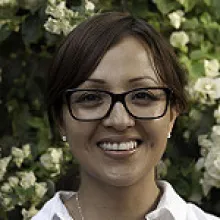
COP21 Begins, as Climate Hope Grows Stronger
Hundreds of world leaders gathered in Paris today to officially kick off the highly anticipated global climate talks. This is a critical moment for the future our life here on Earth. The conference is expected to produce a new and binding global climate accord, which could shape the ways in which we live, govern, create energy, and adapt to a changing climate.
The expectations are set high for this 21st Conference of Parties (COP21) of the United Nations Framework Convention on Climate Change – because they have to be. In the next two weeks, States will have the opportunity to show their commitment to combating climate change. At the close of the negotiations, if all goes well, governments from around the world will adopt the measures necessary to ensure a better planet for present and future generations.
The task at hand for this Conference is finalizing the Paris climate package, which includes a final draft of the new climate agreement and a series of decisions to be adopted by Member Parties. Both are vital to the proper implementation of the Convention. Though it has been successful in elevating climate change in policy discussions worldwide, the Convention still requires States to adopt clear and concrete actions to ensure compliance.
What do we hope to achieve in Paris?
There are two key tasks that AIDA will press Conference negotiators to achieve:
Clarify the commitments related to climate financing after 2020.
- Include language requiring the respect, guarantee, protection, and promotion of human rights in all climate actions in both the preamble and the operating text of the Paris Agreement.
Focus On: Climate Finance
Climate finance is fundamental to ensuring that the commitments established in the Paris Agreement, as well as in the Convention itself, become a reality. Concerning climate finance, the new agreement should include the following key elements:
- Clarity on which countries should mobilize new and additional resources after 2020. It’s also important to reevaluate the role of developing countries that, though they have no obligation to provide financing, may be in a position do to so.
- Clear commitments to increase climate finance to achieve the desired outcomes.
- Clarity on sources of financing, ensuring that those sources implement clear and transparent methods that allow for their accounting and effective use.
- Collective short-term goals that demonstrate clear advances.
- Clarity on the institutional arrangements needed to channel resources. It will be important to strengthen the Green Climate Fund’s role in ensuring that finance supports projects and programs that are low-carbon and climate-resilient.
- Cycles of financial contributions, and their corresponding verification periods.
Climate finance is a critical component of progress on the climate agenda. Providing clarity on this matter is essential to achieving goals and paradigm shifts in the short, medium, and long term.
Focus On: Human Rights
The protection and promotion of human rights is vital in the fight against climate change. The very success of the Paris Agreement depends on this element being integrated into the text and, particularly, into its objectives. A climate agreement featuring language to protect human rights will help to:
- Increase the ambition of the Agreement and strengthen its goals, encouraging better implementation, given that the human rights perspective may remind States of obligations that they already have.
- Clarify the responsibilities of States and other actors in the fight against climate change, and increase understanding of public policies related to it. This provides us the opportunity to advance and provide lessons learned, avoiding the duplication or creation of new obligations.
- Define a clear and acceptable pattern to prevent further socioenvironmental conflicts in the future. Having a uniform legal framework for the recognition of human rights would make it possible to improve the management of water, food, and land, which have particular resonance in Latin America.
The Paris Conference is a historic opportunity for AIDA to strengthen the substantial progress made to date in the fight against climate change.
Andrea Rodríguez Osuna

Andrea Rodríguez Osuna was our senior attorney for the Climate Change Program. Andrea is a Bolivian lawyer with a Master’s in Environmental Law from Stockholm University and a Master’s in Sustainable Development from Uppsala University, Sweden. She has worked and taught in Bolivia, Denmark, Ireland and Sweden, where she gained experience in policy development funding for climate change, sustainable development and access to information, and public participation and access to justice in environmental matters.
